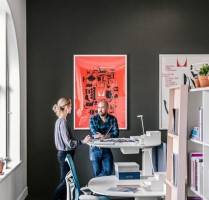January 13, 2016
Growth in freelance economy, as people seek better work-life balance 0
 Nearly one in four employees freelance in some capacity, a recent study of office workers in the US claims. Overall, twelve percent of US employees work as freelancers as their primary source of income, and the same percentage freelance in addition to their primary job. The Staples Advantage Workplace Index reveals that employees freelance for a variety of reasons, including the flexibility to make their own hours (37 percent), make more money (39 percent), and achieve a work-life balance (32 percent). Businesses also benefit from this arrangement by getting access to highly skilled workers needed for special projects. Freelance workers need temporary access to IT services and equipment, designated work spaces, open communication with co-workers, and the right supplies to help deliver projects. As a result, finds the report, smart, collaborative technology is becoming more ‘mainstream’, in helping establish efficient team structures and collaboration models.
Nearly one in four employees freelance in some capacity, a recent study of office workers in the US claims. Overall, twelve percent of US employees work as freelancers as their primary source of income, and the same percentage freelance in addition to their primary job. The Staples Advantage Workplace Index reveals that employees freelance for a variety of reasons, including the flexibility to make their own hours (37 percent), make more money (39 percent), and achieve a work-life balance (32 percent). Businesses also benefit from this arrangement by getting access to highly skilled workers needed for special projects. Freelance workers need temporary access to IT services and equipment, designated work spaces, open communication with co-workers, and the right supplies to help deliver projects. As a result, finds the report, smart, collaborative technology is becoming more ‘mainstream’, in helping establish efficient team structures and collaboration models.


































January 14, 2016
The growing hysteria around employers’ ability to pry is not justified 0
by Mark Eltringham • Comment, Legal news, Technology, Workplace
(more…)